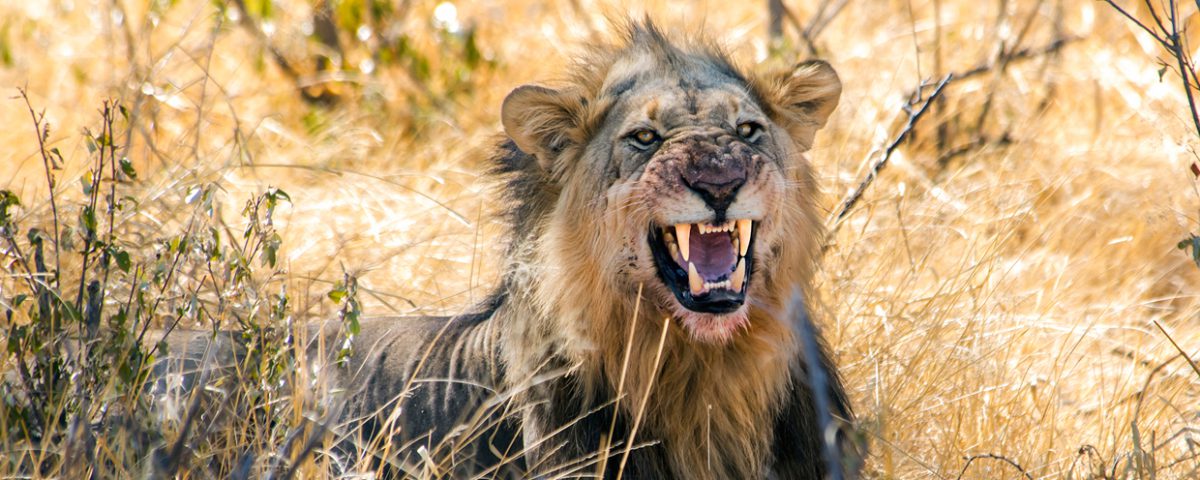
Zebra Hunting in the Khomas Hochland
November 20, 2018
The past and present on the edge of the Namib
November 20, 2018Danene van der Westhuyzen – NAPHA President 2018

O nce, I skimmed through an advertisement for a vacant post, which read as follows:
Young active person interested in low and infrequent pay to play Bwana in remote bushveld. Must be proven raconteur and socialite without liver trouble, expert card player, bartender, caterer, barbecuer, philosopher and African historian. Experience in sanitary engineering, local architecture, labour relations, navigation, medicine and pharmacology, botany, zoology, ichthyology, mineralogy, entomology, butchery, taxidermy, dietetics, optics, photography and radio operation essential. Applicants should speak at least two native African languages fluently as well as English and one other modern European tongue. A solid knowledge of mechanics, driving, gunsmithing, toxicology, ballistics, tracking, marksmanship, hand loading and experience as a professional bodyguard are required. Benefits are a twenty-four hour day, unlimited fresh air, including rain, sun and dust, no medical, dental or life insurance and no retirement benefits. Applicant should supply his own rifles.
This beautiful description, by Peter Hathaway Capstick, strikes at the heart of every hunter. It was written at a time when hunters didn’t have to keep a low profile about their profession and before they were smeared and vilified as “scum” and “lowlifes”.
People like to say life is not that complicated, but life is very complicated. What’s uncomplicated is wanting an ice cream, a doll, or to win a game of tennis.
“Responsibility means, in essence, that we must ultimately provide answers to questions that our loved ones, our neighbours and our country ask us.”
Uncomplicated is sitting in a well-shaded game viewer with cold drinks in the back, remarking on how beautiful Namibia is, all the while hoping for the chance to see a predator make a kill. Uncomplicated is wanting to make a difference and play a part in conservation with all your heart, but just talking about it.
Life becomes complicated when you are a hunter. Hunting, after all, is inevitably a bloody business. It reminds us that we kill in order to live: that we live because of the deaths of other beings, sentient and non-sentient. It becomes complicated because it seems that a large part of the public perceives hunters as “murderers” and “killers”. Before I left home to go to university my father impressed the following on me: “Danene, whatever you think success means, I hope you’ll stay open to the possibility that you have got it all wrong. That you have absolutely no idea what life has got in store for you”, he said.
“My child, you WILL make mistakes. You are NOT perfect. You WILL fail. And when that day comes, and you figure it out, I know that you’ll have the brains, the guts, and the straight up good luck to survive it…Only different people change the world…No one normal has ever changed a damned thing”.We have a limited number of opportunities to love someone, to do our work, to make a difference, and to change the world.
This HuntiNamibia again highlights beautifully how hunters are changing the world. We, the hunters, are more than an idea, an aesthetic. We are a philosophy, a collective, with a professional code of honour and ethics. It is based on the principle that we bring our best, everything we have, every day, especially in a promise to the future. But with hunting come huge responsibilities.
In philosophy, moral responsibility is the status of morally deserving praise, blame, reward or punishment for an act, or omission, in accordance with one’s moral obligations. Deciding what (if anything) counts as “morally obligatory” is a principal concern of ethics.
Now, more than ever, we as hunters need the support and praise of fellow nature lovers for the function and role that hunters play in conservation to be accepted and appreciated. To take a stance for the rightful role of hunting within a natural environment.
Responsibility means, in essence, that we must ultimately provide answers to questions that our loved ones, our neighbours and our country ask us. We cannot afford any failures. There are no grey areas when it comes to selective conservation hunting, and NAPHA strives to educate members in their responsibilities but also reprimand anyone who fails to share in the ethos of ethical and responsible hunting.
We as hunters should not fear to be just that: hunters. Fear is poverty of truth, and truth culminates in faith.
Thank you to our Namibian government who endures a healthy way of thinking, treasures our country’s natural resources, is always prepared to listen to different stakeholders, and understands and promotes sustainability
This article was first published in HuntiNamibia 2018.

